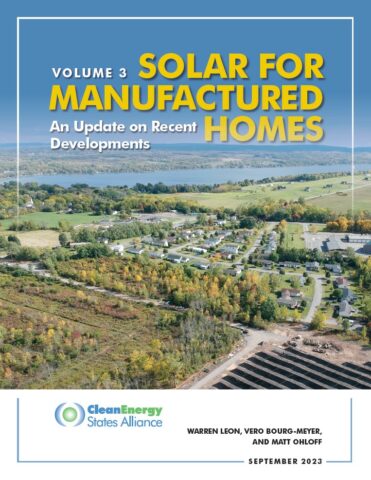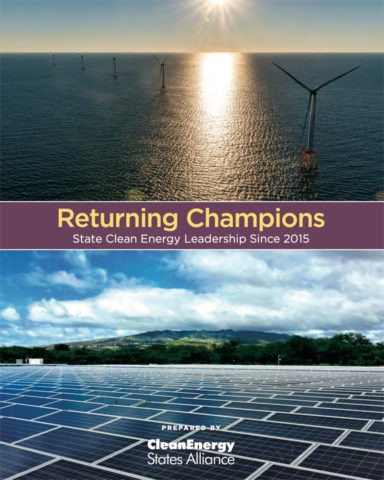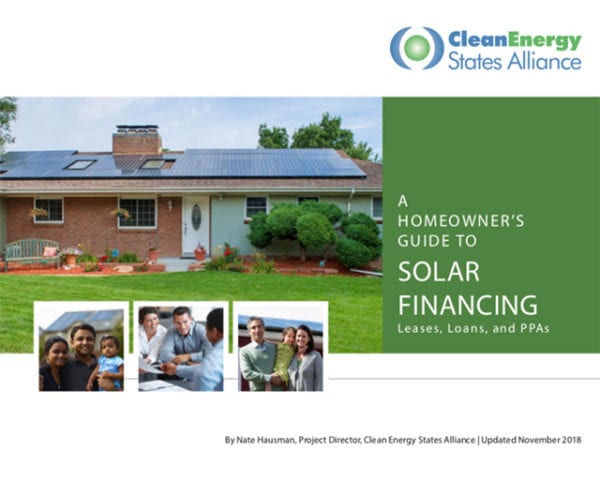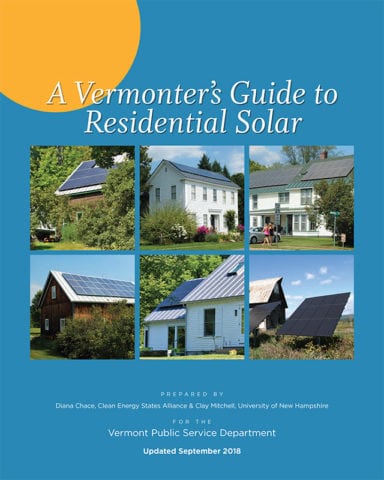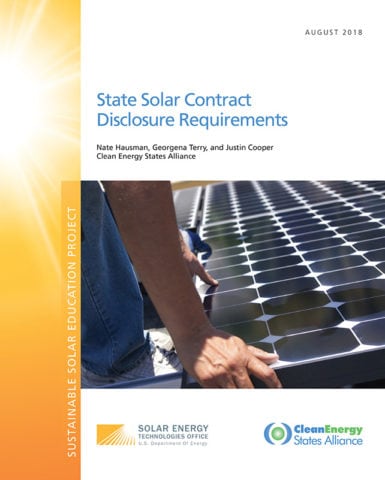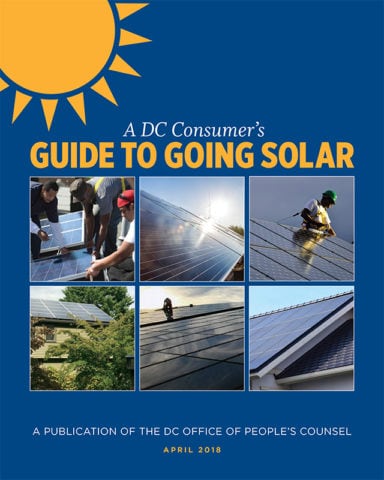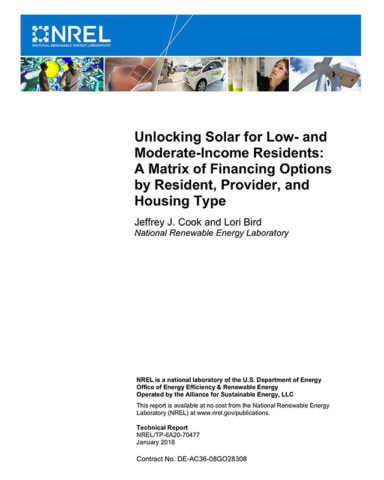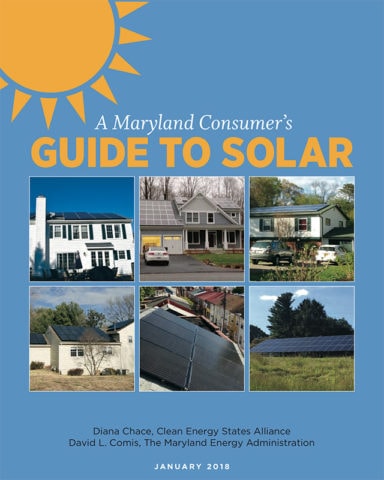Resource Archive - Solar Consumer Protection
SEARCH RESOURCES
You can also search by author name.
RESOURCE TYPES
RESOURCE TOPICS
RESOURCE PROJECTS
RESOURCE YEARS
This directory lists and describes federal and state resources for educating consumers about solar opportunities and considerations.
Washington, DC’s Solar for All program aims to benefit over 100,000 households with incomes at or below 80% of area median income. This case study profiles the program and the ways its administrators have handled outreach and consumer education over the program’s seven-year history.
Manufactured homes, formerly referred to as mobile homes, comprise over 6 percent of America’s housing stock and represent an even larger share of housing for low- and moderate-income households. CESA has published an update to the “Solar for Manufactured Homes” report discussing potential funding opportunities through the Inflation Reduction Act.
Returning Champions: State Clean Energy Leadership Since 2015, a new report from the Clean Energy States Alliance (CESA), highlights the essential role that states are playing to develop and implement effective policies and programs. The report describes the range of strategies and initiatives that states are using to grow clean energy markets, and it provides readers with a concise overview of clean energy trends at the state level.
This guide aims to help homeowners navigate the complex landscape of residential solar photovoltaic (PV) system financing. The guide describes three popular residential solar financing choices – leases, loans, and power purchase agreements (PPAs) – and explains the advantages and disadvantages of each, as well as how they compare to a direct cash purchase. It clarifies key solar financing terms and provides a list of questions homeowners should ask before deciding if and how to proceed with installing a solar system.
There are many ways to build and finance a solar PV system. “A Vermonter’s Guide to Residential Solar” can help residents decide whether it makes sense for them to go solar and, if so, how. The guide is divided into sections that offer relevant information needed at different points during the decision making and installation process.
A rapidly growing residential solar market has created challenges for solar consumers. With so many households adopting solar and more PV systems installed, there is potential for solar consumer protection issues to emerge.
This guide aims to help DC consumers make an informed decision in considering whether to install a solar energy system in their home.
This report identifies the most promising strategies state policymakers might consider using to finance PV for low- and moderate-income customers.
The Maryland Energy Administration and the Clean Energy States Alliance have developed a Maryland Consumers Guide to Solar, designed to be a resource for Maryland residents considering home solar photovoltaic systems.



